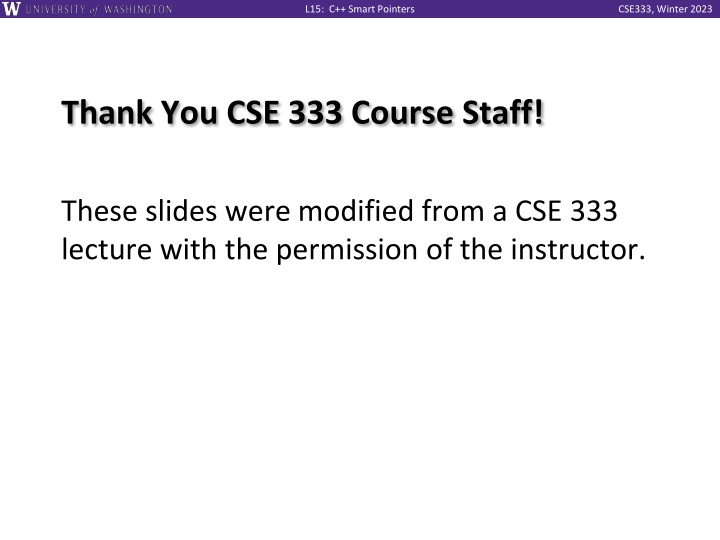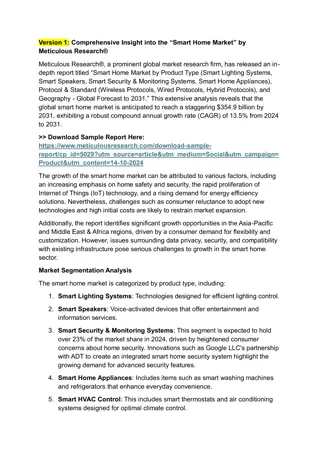Big Data and Smart Development: Understanding the Impact
In this presentation by Shin Shim Lee in Kigali, June 2013, explore the significance of big data through staggering statistics on emails, video uploads, tweets, and unstructured data. Delve into the impact of big data and discover what needs to be done to harness its potential for smart development. Engage with the content, images, and insights shared, and consider the transformative power of data in shaping the future.
Download Presentation

Please find below an Image/Link to download the presentation.
The content on the website is provided AS IS for your information and personal use only. It may not be sold, licensed, or shared on other websites without obtaining consent from the author.If you encounter any issues during the download, it is possible that the publisher has removed the file from their server.
You are allowed to download the files provided on this website for personal or commercial use, subject to the condition that they are used lawfully. All files are the property of their respective owners.
The content on the website is provided AS IS for your information and personal use only. It may not be sold, licensed, or shared on other websites without obtaining consent from the author.
E N D
Presentation Transcript
L15: C++ Smart Pointers CSE333, Winter 2023 Thank You CSE 333 Course Staff! These slides were modified from a CSE 333 lecture with the permission of the instructor.
L15: C++ Smart Pointers CSE333, Winter 2023 C++ Smart Pointers CSE 333 Winter 2023 Instructor: Justin Hsia Teaching Assistants: Adina Tung James Froelich Noa Ferman Saket Gollapudi Timmy Yang Zhuochun Liu Danny Agustinus Lahari Nidadavolu Patrick Ho Sara Deutscher Wei Wu Edward Zhang Mitchell Levy Paul Han Tim Mandzyuk Yiqing Wang
L15: C++ Smart Pointers CSE333, Winter 2023 Lecture Outline Introducing STL Smart Pointers std::shared_ptr std::unique_ptr Smart Pointer Limitations std::weak_ptr
L15: C++ Smart Pointers CSE333, Winter 2023 Why Smart Pointers? C++ programming is hard for many reasons, especially its memory management component which does not exist in languages like Java or Python According to Microsoft, Smart Pointers are to help ensure ensure that programs are free of memory and resource leaks and are exception-safe Exception safety means the code works properly when exceptions are thrown
L15: C++ Smart Pointers CSE333, Winter 2023 Goals for Smart Pointers Should automatically handle dynamically-allocated memory to decrease programming overhead of managing memory Don t have to explicitly call delete or delete[] Memory will deallocate when no longer in use ties the lifetime of the data to the smart pointer object Should work similarly to using a normal/ raw pointer Expected/usual behavior using ->, *, and [] operators Only declaration/construction should be different
L15: C++ Smart Pointers CSE333, Winter 2023 A Na ve Example: ToyPtr ToyPtr.h #ifndef TOYPTR_H_ #define TOYPTR_H_ template <typename T> class ToyPtr { public: ToyPtr(T* ptr) : ptr_(ptr) { } // constructor ~ToyPtr() { delete ptr_; } // destructor T& operator*() { return *ptr_; } // * operator T* operator->() { return ptr_; } // -> operator private: T* ptr_; // the pointer itself }; #endif // TOYPTR_H_
L15: C++ Smart Pointers CSE333, Winter 2023 ToyPtr Class Issue toyuse.cc #include "ToyPtr.h" // We want two pointers! int main(int argc, char** argv) { ToyPtr<int> x(new int(5)); ToyPtr<int> y(x); return EXIT_SUCCESS; } x ptr_ 5 double delete y ptr_ Brainstorm ways to design around this.
L15: C++ Smart Pointers CSE333, Winter 2023 Smart Pointers Solutions Option 1: Reference Counting shared_ptr (and weak_ptr) Track the number of references to an owned piece of data and only deallocate when no smart pointers are managing that data Option 2: Unique Ownership of Memory unique_ptr Disable copying (cctor, op=) to prevent sharing
L15: C++ Smart Pointers CSE333, Winter 2023 Option 1: Reference Counting shared_ptr implements reference counting https://cplusplus.com/reference/memory/shared_ptr/ Counts the number of references to a piece of heap-allocated data data and only deallocates it when the reference count reaches 0 This means that it is no longer being used and its lifetime has come to an end Managed abstractly through sharing a resource counter: Constructors will create the counter Copy constructor and operator= will increment the counter Destructor will decrement the counter
L15: C++ Smart Pointers CSE333, Winter 2023 Now using shared_ptr shareduse.cc #include <memory> // for std::shared_ptr #include <cstdlib> // for EXIT_SUCCESS // We want two pointers! int main(int argc, char** argv) { std::shared_ptr<int> x(new int(5)); *x += 3; std::shared_ptr<int> y(x); return EXIT_SUCCESS; } std::shared_ptr<int> x(new int(5)); // creates ref count *x += 3; // usage is the same std::shared_ptr<int> y(x); // increments ref count x No error & no leak! 5 8 y ref count: 1 2 1 0
L15: C++ Smart Pointers CSE333, Winter 2023 shared_ptrs and STL Containers Use shared_ptrs inside STL Containers Avoid extra object copies Safe to do, since copy/assign maintain a shared reference count Copying increments ref count, then original is destructed sharedvec.cc vector<std::shared_ptr<int> > vec; vec.push_back(std::shared_ptr<int>(new int(9))); vec.push_back(std::shared_ptr<int>(new int(5))); vec.push_back(std::shared_ptr<int>(new int(7))); int& z = *vec[1]; std::cout << "z is: " << z << std::endl; std::shared_ptr<int> copied(vec[1]); // works! std::cout << "*copied: " << *copied << std::endl; vec.pop_back(); // removes smart ptr & deallocates 7!
L15: C++ Smart Pointers CSE333, Winter 2023 Option 2: Unique Ownership A unique_ptr is the sole owner of a pointer to memory https://cplusplus.com/reference/memory/unique_ptr/ Enforces uniqueness by disabling copy and assignment (compiler error if these methods are used) Will therefore always call delete on the managed pointer when destructed As the sole owner, a unique_ptr can choose to transfer or release ownership of a pointer
L15: C++ Smart Pointers CSE333, Winter 2023 unique_ptrs Cannot Be Copied std::unique_ptr has disabled its copy constructor and assignment operator You cannot copy a unique_ptr, helping maintain uniqueness or ownership uniquefail.cc #include <memory> // for std::unique_ptr #include <cstdlib> // for EXIT_SUCCESS int main(int argc, char** argv) { std::unique_ptr<int> x(new int(5)); // 1-arg ctor (pointer) cctor disabled; compiler error std::unique_ptr<int> y(x); // std::unique_ptr<int> z; // default ctor, holds nullptr op= disabled; compiler error z = x; // return EXIT_SUCCESS; }
L15: C++ Smart Pointers CSE333, Winter 2023 unique_ptrs and STL unique_ptrs can also be stored in STL containers! Contradiction? STL containers make copies of stored objects and unique_ptrs cannot be copied Recall: why do container operations/methods create extra copies? Generally to move things around in memory/the data structure The end result is still one copy of each element this doesn t break the sole ownership notion!
L15: C++ Smart Pointers CSE333, Winter 2023 Passing Ownership As the owner of a pointer, unique_ptrs should be able to remove or transfer its ownership release() and reset()free ownership uniquepass.cc int main(int argc, char** argv) { unique_ptr<int> x(new int(5)); cout << "x: " << *x << endl; // Releases ownership and returns a raw pointer unique_ptr<int> y(x.release()); // x gives ownership to y cout << y: " << *y << endl; unique_ptr<int> z(new int(10)); // y gives ownership to z // z s reset() deallocates "10" and stores y s pointer z.reset(y.release()); return EXIT_SUCCESS; }
L15: C++ Smart Pointers CSE333, Winter 2023 unique_ptr and STL Example STL supports transfer ownership of unique_ptrs using move semantics uniquevec.cc int main(int argc, char** argv) { std::vector<std::unique_ptr<int> > vec; vec.push_back(std::unique_ptr<int>(new int(9))); vec.push_back(std::unique_ptr<int>(new int(5))); vec.push_back(std::unique_ptr<int>(new int(7))); z holds 5 // int z = *vec[1]; std::cout << "z is: " << z << std::endl; vec compiler error! // std::unique_ptr<int> copied(vec[1]); 9 5 7 return EXIT_SUCCESS; }
L15: C++ Smart Pointers CSE333, Winter 2023 unique_ptr and Move Semantics Move semantics (as compared to Copy semantics ) move values from one object to another without copying https://cplusplus.com/doc/tutorial/classes2/#move Useful for optimizing away temporary copies STL s use move semantics to transfer ownership of unique_ptrs instead of copying uniquemove.cc ... (includes and other examples) int main(int argc, char** argv) { std::unique_ptr<string> a(new string("Hello")); // moves a to b std::unique_ptr<string> b = std::move(a); // a is now nullptr (default ctor of unique_ptr) std::cout << "b: " << *b << std::endl; // "Hello" return EXIT_SUCCESS; }
L15: C++ Smart Pointers CSE333, Winter 2023 Aside: Smart Pointers and Arrays Smart pointers can store arrays as well and will call delete[] on destruction uniquearray.cc #include <memory> // for std::unique_ptr #include <cstdlib> // for EXIT_SUCCESS using std::unique_ptr; int main(int argc, char **argv) { unique_ptr<int[]> x(new int[5]); x[0] = 1; x[2] = 2; return EXIT_SUCCESS; }
L15: C++ Smart Pointers CSE333, Winter 2023 Choosing Between Smart Pointers unique_ptrs make ownership very clear Generally the default choice due to reduced complexity the owner is responsible for cleaning up the resource Example: would make sense in HW1 & HW2, where we specifically documented who takes ownership of a resource Less overhead: small and efficient shared_ptrs allow for multiple simultaneous owners Reference counting allows for smarter deallocation but consumes more space and logic and is trickier to get right Common when using more well-connected data structure Can you think of an example?
L15: C++ Smart Pointers CSE333, Winter 2023 Lecture Outline Introducing STL Smart Pointers std::shared_ptr std::unique_ptr Smart Pointer Limitations std::weak_ptr
L15: C++ Smart Pointers CSE333, Winter 2023 Limitations with Smart Pointers Smart pointers are only as smart as the behaviors that have been built into their class methods and non-member functions! Limitations we will look at now: Can t tell if pointer is to the heap or not Circumventing ownership rules Still possible to leak memory! Sorting smart pointers [Bonus slides]
L15: C++ Smart Pointers CSE333, Winter 2023 Using a Non-Heap Pointer Smart pointers will still call delete when destructed #include <cstdlib> #include <memory> using std::shared_ptr; int main(int argc, char** argv) { int x = 333; shared_ptr<int> p1(&x); return EXIT_SUCCESS; }
L15: C++ Smart Pointers CSE333, Winter 2023 Re-using a Raw Pointer (unique_ptr) Smart pointers can t tell if you are re-using a raw pointer #include <cstdlib> #include <memory> x using std::unique_ptr; p1 int main(int argc, char** argv) { int* x = new int(333); 333 p2 unique_ptr<int> p1(x); double delete unique_ptr<int> p2(x); return EXIT_SUCCESS; }
L15: C++ Smart Pointers CSE333, Winter 2023 Re-using a Raw Pointer (shared_ptr) Smart pointers can t tell if you are re-using a raw pointer #include <cstdlib> #include <memory> x using std::shared_ptr; ref count = 1 p1 int main(int argc, char** argv) { int* x = new int(333); 333 p2 ref count = 1 shared_ptr<int> p1(x); double delete shared_ptr<int> p2(x); return EXIT_SUCCESS; }
L15: C++ Smart Pointers CSE333, Winter 2023 Solution: Don t Use Raw Pointer Variables Smart pointers replace your raw pointers; passing new and then using the copy constructor is safer: #include <cstdlib> #include <memory> using std::shared_ptr; int main(int argc, char** argv) { int* x = new int(333); shared_ptr<int> p1(new int(333)); shared_ptr<int> p2(p1); return EXIT_SUCCESS; }
L15: C++ Smart Pointers CSE333, Winter 2023 Caution Using get() Smart pointers still have functions to return the raw pointer without losing its ownership get() can circumvent ownership rules! #include <cstdlib> #include <memory> // Same as re-using a raw pointer int main(int argc, char** argv) { unique_ptr<int> p1(new int(5)); unique_ptr<int> p2(p1.get()); return EXIT_SUCCESS; }
L15: C++ Smart Pointers CSE333, Winter 2023 Cycle of shared_ptrs What happens when main returns? #include <cstdlib> #include <memory> head using std::shared_ptr; struct A { shared_ptr<A> next; shared_ptr<A> prev; }; next next int main(int argc, char** argv) { shared_ptr<A> head(new A()); head->next = shared_ptr<A>(new A()); head->next->prev = head; prev prev return EXIT_SUCCESS; } sharedcycle.cc
L15: C++ Smart Pointers CSE333, Winter 2023 Solution: weak_ptrs weak_ptr is similar to a shared_ptr but doesn t affect the reference count https://cplusplus.com/reference/memory/weak_ptr/ Not really a pointer as it cannotbe dereferenced (!) would break our notion of shared ownership To deference, you first use the lock method to get an associated shared_ptr
L15: C++ Smart Pointers CSE333, Winter 2023 Breaking the Cycle with weak_ptr Now what happens when main returns? #include <cstdlib> #include <memory> head using std::shared_ptr; using std::weak_ptr; struct A { shared_ptr<A> next; weak_ptr<A> prev; }; next next int main(int argc, char** argv) { shared_ptr<A> head(new A()); head->next = shared_ptr<A>(new A()); head->next->prev = head; prev prev return EXIT_SUCCESS; } weakcycle.cc
L15: C++ Smart Pointers CSE333, Winter 2023 Dangling weak_ptrs weak_ptrs don t change reference count and can become dangling Data referenced may have been delete d weakrefcount.cc ... (includes and other examples) int main(int argc, char** argv) { std::weak_ptr<int> w; { // temporary inner scope std::shared_ptr<int> y(new int(10)); w = y; // assignment operator of weak_ptr takes a shared_ptr std::shared_ptr<int> x = w.lock(); // "promoted" shared_ptr std::cout << *x << " " << w.expired() << std::endl; } std::cout << w.expired() << std::endl; w.lock(); // returns a nullptr return EXIT_SUCCESS; }
L15: C++ Smart Pointers CSE333, Winter 2023 Summary of Smart Pointers A shared_ptr utilizes reference counting for multiple owners of an object in memory deletes an object once its reference count reaches zero A weak_ptr works with a shared object but doesn t affect the reference count Can t actually be dereferenced, but can check if the object still exists and can get a shared_ptr from the weak_ptr if it does A unique_ptrtakes ownership of a pointer Cannot be copied, but can be moved
L15: C++ Smart Pointers CSE333, Winter 2023 Some Important Smart Pointer Methods Visit http://www.cplusplus.com/ for more information on these! std::unique_ptr<T> U; U.get() U.release() U.reset(q) Returns the raw pointer U is managing U stops managing its raw pointer and returns the raw pointer U cleans up its raw pointer and takes ownership of q std::shared_ptr<T> S; S.get() S.use_count() S.unique() Returns the raw pointer S is managing Returns the reference count Returns true iff S.use_count() == 1 std::weak_ptr<T> W; W.lock() W.use_count() W.expired() Constructs a shared pointer based off of W and returns it Returns the reference count Returns true iff W is expired (W.use_count() == 0)
L15: C++ Smart Pointers CSE333, Winter 2023 BONUS SLIDES
L15: C++ Smart Pointers CSE333, Winter 2023 Smart Pointers and < Smart pointers implement some comparison operators, including operator< However, it doesn t invoke operator< on the pointed-to objects; instead, it just promises a stable, strict ordering (probably based on the pointer address, not the pointed-to-value) To use the sort() algorithm on a container like vector, you need to provide a comparison function To use a smart pointer in a sorted container like map, you need to provide a comparison function when you declare the container
L15: C++ Smart Pointers CSE333, Winter 2023 unique_ptr and STL Sorting uniquevecsort.cc using namespace std; bool sortfunction(const unique_ptr<int> &x, const unique_ptr<int> &y) { return *x < *y; } void printfunction(unique_ptr<int> &x) { cout << *x << endl; } int main(int argc, char **argv) { vector<unique_ptr<int> > vec; vec.push_back(unique_ptr<int>(new int(9))); vec.push_back(unique_ptr<int>(new int(5))); vec.push_back(unique_ptr<int>(new int(7))); // buggy: sorts based on the values of the ptrs sort(vec.begin(), vec.end()); cout << "Sorted:" << endl; for_each(vec.begin(), vec.end(), &printfunction); // better: sorts based on the pointed-to values sort(vec.begin(), vec.end(), &sortfunction); cout << "Sorted:" << endl; for_each(vec.begin(), vec.end(), &printfunction); return EXIT_SUCCESS; }
L15: C++ Smart Pointers CSE333, Winter 2023 unique_ptr, < , and maps Similarly, you can use unique_ptrs as keys in a map Reminder: a map internally stores keys in sorted order Iterating through the map iterates through the keys in order By default, < is used to enforce ordering You must specify a comparator when constructing the map to get a meaningful sorted order using < of unique_ptrs Compare (the 3rd template) parameter: A binary predicate that takes two element keys as arguments and and returns a bool. This can be a function pointer or a function object. bool fptr(T1& lhs, T1& rhs); OR member function bool operator() (const T1& lhs, const T1& rhs);























